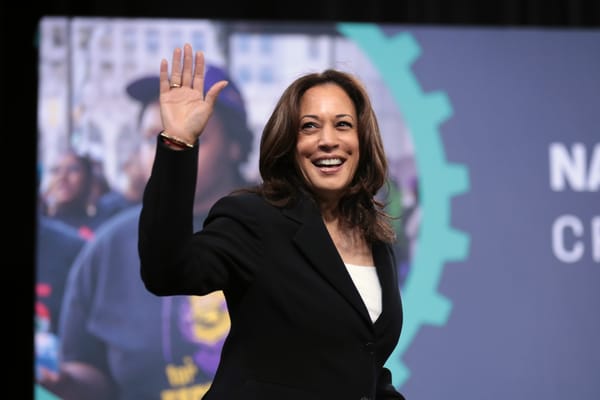Maybe it keeps going, this Kamala Harris brat summer, sustained by the buzz of the K-Hive and the D-Unit, the memes mocking her Republicans rivals Donald Trump and J.D. Vance, the celebrity endorsements, the establishment backing. Maybe the Democrats win on vibes alone.
There are only 75 days left until the presidential election on Nov. 5. It’s a tough break for Trump, who had been preparing for months to assail President Biden for his senescence. But then Biden shuffled off the stage, and Trump found himself at loose ends. He has lashed out wildly at Harris for her laugh and her background. And now it is he who seems to have lost a step.
But if Democratic strategist David Axelrod is right—and he tends to be—this is a moment of “irrational exuberance.” Presumably, it will end, probably sometime after Labor Day. And when it does, Harris will be forced to reveal what she believes: about health insurance, taxation, Ukraine, Israel, Mexico, the Supreme Court, artificial intelligence, global warming, and immigration.
So far, she has rolled out a raft of economic proposals that range from the reasonable (tax incentives to juice housing construction) to the almost certainly unworkable (price controls on food products), the whole of it carefully couched in language intended to pacify both the corporate center and the populist left. Harris is no “communist,” as Trump has tried to claim. She is, instead, a classic Clintonian triangulator, trying to reach the White House, as Bill did, without offending any of the constituencies she needs to win.
But it may not work, especially with the undecided swing-state independents who hold the keys to electoral success. To the terminally online laptop class, of which I am very much part, Harris is headed for the kind of victory that will make Reagan versus Mondale look like a close call. The polls are indeed showing renewed enthusiasm for the Democratic ticket, but that may be deceptive. Harry Enten, the respected CNN pollster, pointed out last week that battleground states tend to undercount Trump support; that Trump’s support nationwide is higher in 2024 than it was at this time in either 2016 and 2020; and that while excitement for Harris is indeed high, Democrats aren’t much more likely than they were in May to actually vote.
“Donald Trump is very much in this race,” Enten concluded.
The culture critic Jay Caspian Kang observed in The New Yorker that as “wildly different as Harris and Trump are, their campaigns seem to share a degree of indifference to the specifics of what their candidates are saying, because both campaigns realize that many of their voters are unconcerned about such details—or, at the very least, are unlikely to be moved by them. What matters to many voters right now is their hatred and fear, however justified, of the opposing candidate.” That seems about right to me. To some degree, both campaigns are making emotional appeals, treating policy as something that can be addressed after the inauguration.
It is Democrats, above all, who should demand concrete policy proposals from Harris. Because if they don’t, they will end up just like the Republicans who treated Trump like a blank slate on which conservative ideas could be inscribed, only to discover that the lack of campaign specificity translated all too easily into presidential aimlessness.
To be sure, politics is attitudinal to a large degree. Hillary Clinton’s 2016 campaign had detailed policy briefs for every issue the presidency could touch. But she had no access to the secret longings and fears of the American people. There were things roiling the nation that Jake Sullivan could never put in a memo. If she had vibes, they were either bad or artificial.
“The longer you party, the worse your hangover.”
Harris has excited Democrats because they had been dreading a rerun of the Biden-Trump election. The scenes from Chicago this week have been jubilant, reminiscent to many of the Denver convention 16 years ago from which Obama emerged as the nominee. But while I have heard plenty about Project 2025—the Heritage Foundation’s cartoonishly grandiose vision for a second Trump term—I have heard less about what a first Harris term would look like the last several nights.
The longer you party, the worse your hangover. I don’t mean to be that guy, the one who thinks that maybe it’s time to hail a cab back to Brooklyn. But the Democrats should want Harris to take hard questions—and they need to hear how she answers them. After all, it’s not too much to expect our politics to be more than just a clever meme.
